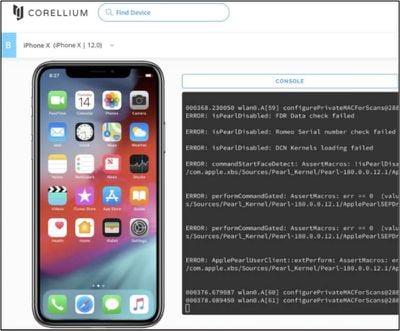Corellium, a mobile device company that supports iOS, this week won a significant victory in its legal battle against Apple. Apple last year sued Corellium for copyright infringement because the Corellium software is designed to replicate iOS to allow security researchers to locate bugs and security flaws.

According to The Washington Post, a Florida judge threw out Apple's claims that Corellium had violated copyright law with its software. The judge said that Corellium successfully demonstrated that it operates under fair use terms.
"Weighing all the necessary factors, the Court finds that Corellium has met its burden of establishing fair use," Judge Smith wrote Tuesday's order. "Thus, its use of iOS in connection with the Corellium Product is permissible."
In its lawsuit, Apple said that Corellium illegally replicated the operating system and applications that run on the iPhone and iPad. "Corellium has simply copied everything: the code, the graphical user interface, the icons - all of it, in exacting detail," Apple said in the original filing.
Corellium's software does indeed create digital replicas of iOS, iTunes, and user interface elements available on a web-based platform or custom platform built by Corellium, with the software posed as an exact copy of iOS to allow security researchers to locate bugs. Corellium argued that its software helps Apple by making it easier for security researchers to find flaws and has also accused Apple of using the lawsuit to "crack down on jailbreaking."
Corellium claimed that Apple's code in its product is "fair use," which the judge in the case agreed with. Apple has also said that Corellium circumvented Apple's security measures to create its software and violated the Digital Millennium Copyright Act, and that claim has not been tossed out. Apple has not yet commented on the decision.
As an alternative to Corellium, Apple launched a Security Device Research Program to give vetted researchers access to specially-configured iPhones that are less locked down than consumer devices with the aim of helping researchers locate bugs in iOS. Apple in late December began sending out the first of these research iPhones.



















